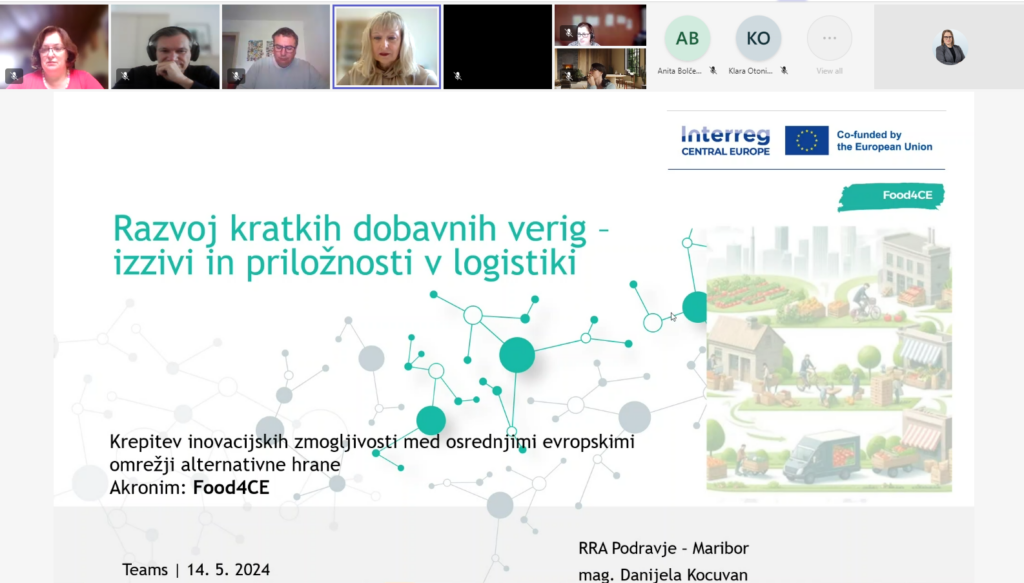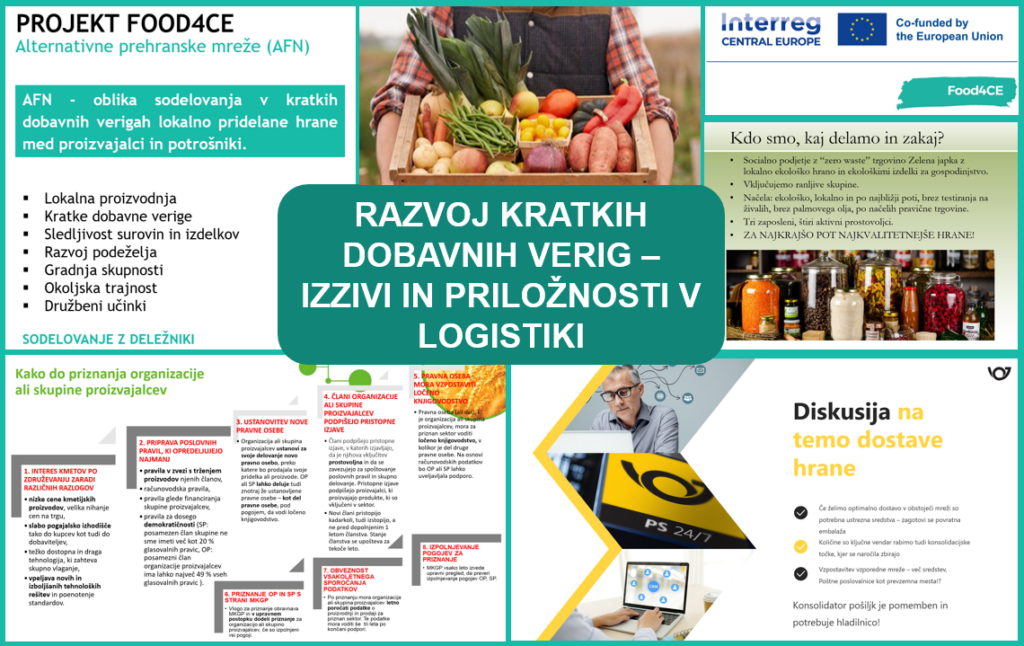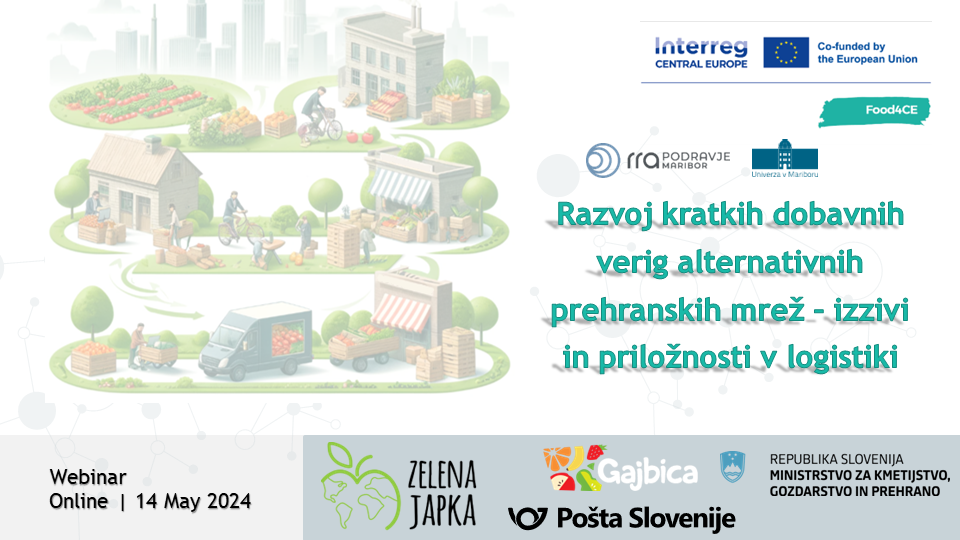On Tuesday 14 May 2024, a webinar was held on Developing Short Supply Chains – Challenges and Opportunities in Logistics, focusing on the significance of high-quality local food for a resilient food supply system.
The event aimed to highlight the importance of locally produced food for health and resilience, discuss challenges and opportunities in logistics for AFNs, present successful case studies and research findings, facilitate networking and collaboration among stakeholders and, finally, explore financial incentives and support for AFNs.
The webinar was organised by the Regional Development Agency for Podravje – Maribor, which is a partner in the Food4CE project. In addition to Slovenian representatives of the project and speakers, the meeting was well attended by representatives of Alternative Food Networks, local food providers, representatives from the Faculty of Agriculture and Life Sciences, development agencies, local action groups, agricultural advisors, public institutions and others.

Danijela Kocuvan, MSc, Food4CE project manager at RRA Podravje – Maribor, presented the Food4CE project, funded by the Interreg Central Europe Programme, which aims to support Alternative Food Networks (AFNs) in their efforts to create sustainable and resilient food systems. The main findings, challenges and opportunities of the desktop research were highlighted during the event, focusing on existing alternative food networks in Slovenia. Participants were further informed about the activities of the project and invited to further participate in project events.
Among the speakers was Iris Magajna, Social Enterprise Manager – Pupillam Association, Soc. p., who presented the activities carried out by Zelena japka: a “zero waste” shop with organic food and household cleaning products. In addition to striving for reduced waste, Zelena japka also operate according to the principle of fair trade. Their aim is to find ways to provide organic and local food to customers in the shortest and most optimal way for everyone, while keeping in mind that the food maintains its quality.
Kristijan Perčič, Head of Innovation at Pošta Slovenije, spoke next. In the context of parcel delivery, Pošta Slovenije already delivers various products that fall into the food and beverage segment, talking about the delivery of non-perishable food that is easier to deliver in parcels. In the past, they have already explored some initiatives with the desire to ensure the delivery of locally processed food (farms, cooperatives, ICT cluster, Optifarm, Cooperative Dobrina, etc.). As a good practice, Kristijan Perčič highlighted the delivery of products from the Mercator store in the Maribor area, which took place by refrigerated vehicle, five times a day at two-hour intervals.
Polona Grahovac, PhD, Head of the Sectoral Development Plans Department at the Ministry of Agriculture, Forestry and Food, finally presented the Ministry’s current incentives for farmers and stakeholders to connect and the challenges they face in this area. Two were highlighted, namely:
- Increasing the number of farms linked in different forms of production and market organisation and the establishment and development of short supply chains, local markets and agri-food chains.
- Strengthening all links in the chain through investments in production and processing, with an emphasis on collective investments made by groups, producer organisations and producers organised in other forms of association.
Following the presentations of the selected stakeholders, a discussion among the participants of the webinar followed.

